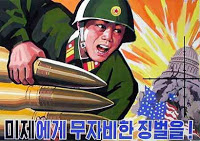Social Sciences

- Monday In Washington April 14, 2014
IDENTIFYING CHALLENGES TO DELIVERING CBRNe CAPABILITIES IN THE ASIA-PACIFIC. 4/14, 8:30am-4:30pm. Sponsor: Banyan Analytics. Speakers: Charles Casto, Former Regional Administrator, Nuclear Regulatory Commission; N. Vinod Chandra Menon, Former Member,...
- Japan-korean Relations
"With the help of Japan, China, and Manchukuo, the world can be at peace"On Friday afternoon, February 22, Prime Minister of Japan Shinzo Abe gave a speech to a hand-selected crowd at CSIS in Washington. He is the grandson of Nobusuke Kishi who was an...
- August Programs
August in Washington is hot and quiet. Anyone with any sense leaves. Unfortunately, a few folks have not gotten the memo that this is the time NOT to hold any events. Unfortunately, the Korea Economic Institute is hiding all the new analytical talent...
- The Week Before Christmas
Congress still in town... The Defense Budget and American Power. 12/22, 10:00-11:30, Washington, DC. Sponsor: Brookings Institution. Speakers: Martin Indyk, vice president and director of foreign policy at Brookings; Robert Kagan, senior fellow in...
- Kim Jong Il Visits China
Kim Jong Il has visited China four times since 2000, each time by train and each time under hush-hush circumstances. This week was his latest trip, lasting from May 3 to May 7th. The following is a list of participants at a meeting between Chinese President...
Social Sciences
US extended deterence in East Asia

Earlier this month, Japan's former Prime Minister Yukio Hatayama said that he used "deterrence" as an "expedient" fallback position to explain why he renegged on his promise to close the Futenma Marine Corps Air Base and move US Marines off of Okinawa. He, like many Japanese, are not convinced that the US on Okinawa provides a credible deterrence to Chinese or North Korean aggression.
This issue will be discussed by APP member Richard Bush, Senior Fellow and Director, Center for Northeast Policy Studies, Brookings; Steven Pifer, Senior Fellow and Director, Arms Control Initiative, Brookings; and Victor Cha, D.S. Song Professor of Government, Georgetown University at a Brookings Institution forum, US Extended Deterence in East Asia, on Thursday, February 24th from 3:00 to 4:30pm. CNAPS Brookings is an institutional member of APP.
APP member Michael McDevitt, Vice President and Director, CNA Strategic Studies just published a Brookings Commentary, Deterring North Korean Provocations. He argues that it is time to strengthen the deterrence against North Korea by focusing on retaliation and commitment. It may be time to end US forces "strategic flexibility" in South Korea: "Taking strategic flexibility off the table would be a step the alliance could take to impress upon Pyongyang that the defense of South Korea is still its central task, and that the United States is not intimidated by the fact that Pyongyang has a nuclear capability that puts U.S. forces in Korea at risk." Further, he suggests that Washington should adopt Seou's new ?manifold retaliation? approach that promises consequences for hostile acts that go beyond economic and diplomatic options.
Yet he concludes:
Yet he concludes:
Finally, we should not lose sight of the fact that being reluctant to retaliate and perhaps trigger an escalatory cycle that could lead to war has been a successful strategy against a second North Korean invasion. South Korea has avoided war, and as a result has flourished politically and economically. In retrospect, the frustration of not being able to militarily punish North Korea for its hostile acts has been the price that was paid for the overall success of South Korea and its current prominence in the world. Ironically, by attempting to deter North Korean provocations, the new approach could make war more likely if it turns out that Kim Jong-il has a higher tolerance for risk than President Lee believes. If over time, alliance mangers conclude that restraint is more sensible than retaliation, the North should not be allowed to conclude that this ?turning the other cheek? to a hostile act implies a weakness in the ability of the alliance to defeat an invasion.
- Monday In Washington April 14, 2014
IDENTIFYING CHALLENGES TO DELIVERING CBRNe CAPABILITIES IN THE ASIA-PACIFIC. 4/14, 8:30am-4:30pm. Sponsor: Banyan Analytics. Speakers: Charles Casto, Former Regional Administrator, Nuclear Regulatory Commission; N. Vinod Chandra Menon, Former Member,...
- Japan-korean Relations
"With the help of Japan, China, and Manchukuo, the world can be at peace"On Friday afternoon, February 22, Prime Minister of Japan Shinzo Abe gave a speech to a hand-selected crowd at CSIS in Washington. He is the grandson of Nobusuke Kishi who was an...
- August Programs
August in Washington is hot and quiet. Anyone with any sense leaves. Unfortunately, a few folks have not gotten the memo that this is the time NOT to hold any events. Unfortunately, the Korea Economic Institute is hiding all the new analytical talent...
- The Week Before Christmas
Congress still in town... The Defense Budget and American Power. 12/22, 10:00-11:30, Washington, DC. Sponsor: Brookings Institution. Speakers: Martin Indyk, vice president and director of foreign policy at Brookings; Robert Kagan, senior fellow in...
- Kim Jong Il Visits China
Kim Jong Il has visited China four times since 2000, each time by train and each time under hush-hush circumstances. This week was his latest trip, lasting from May 3 to May 7th. The following is a list of participants at a meeting between Chinese President...
